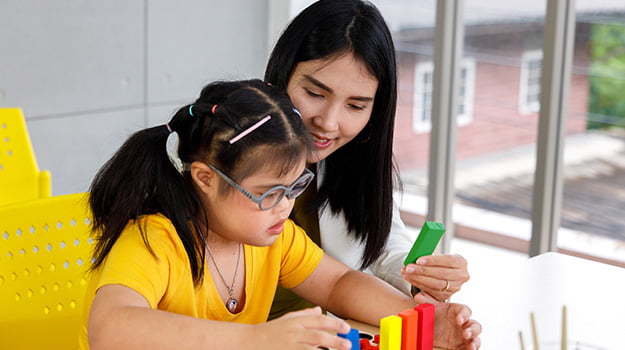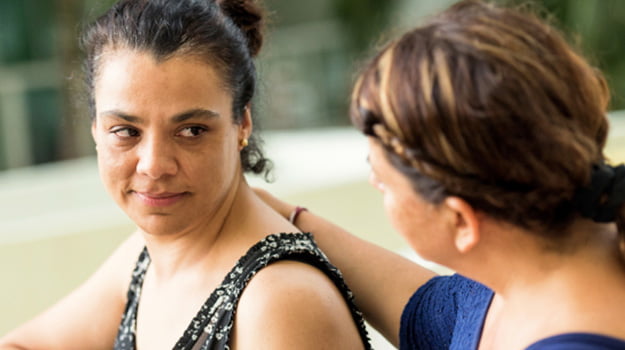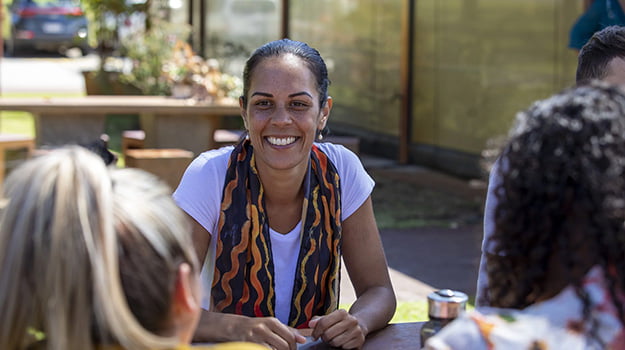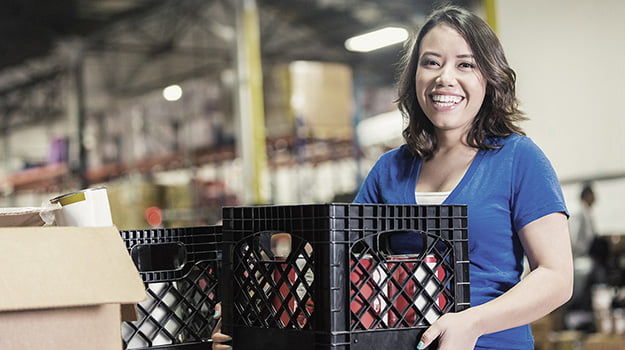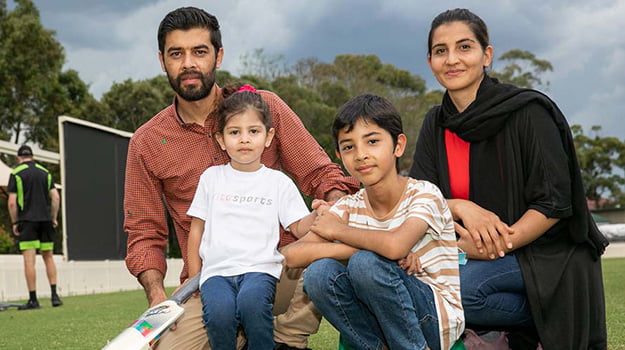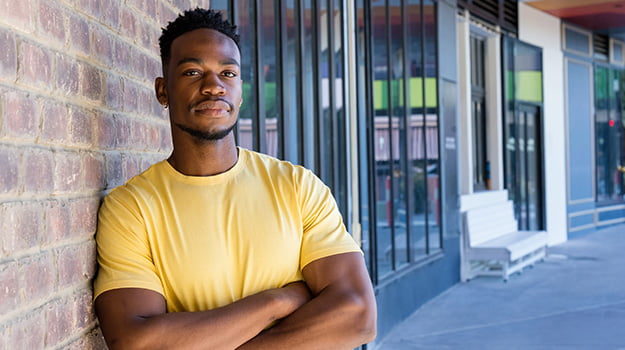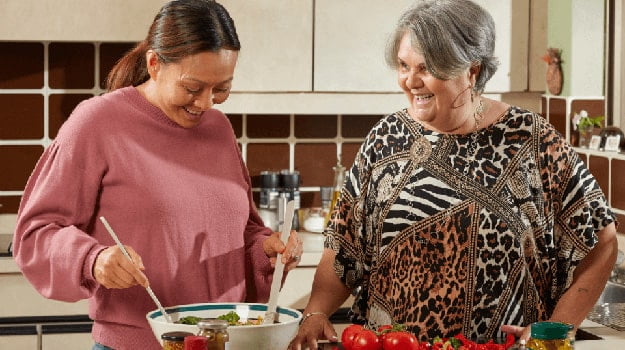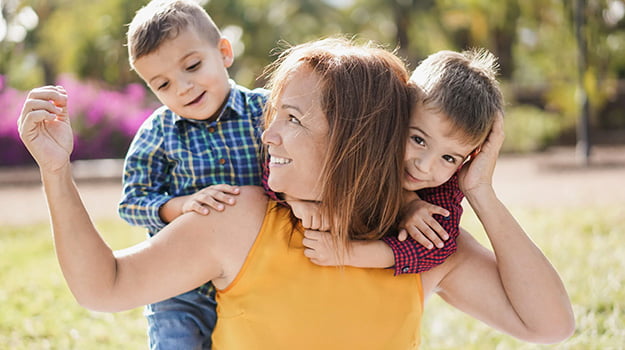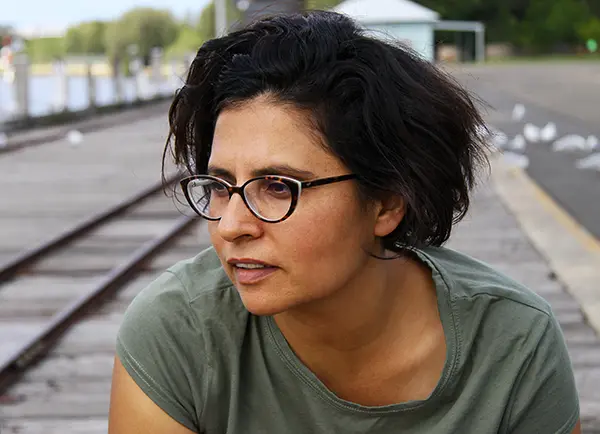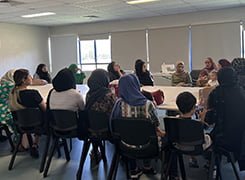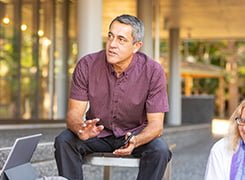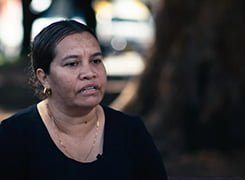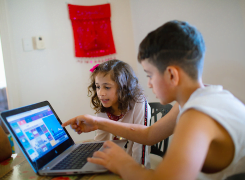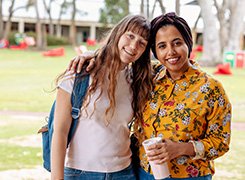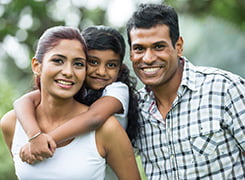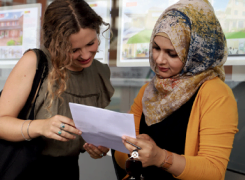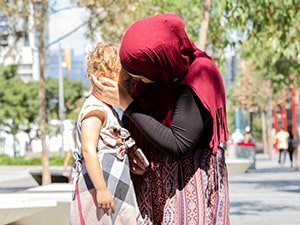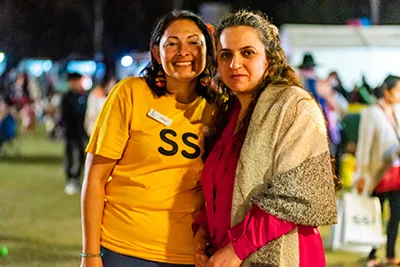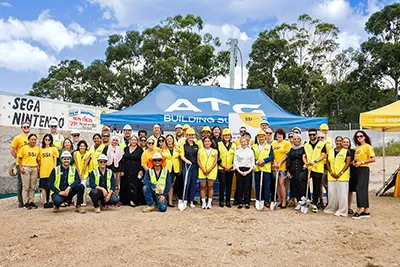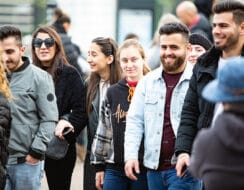18 Aug 2021
Media releasesRefugees especially vulnerable to mental health toll of COVID-19
A study has explored the mental health impact of COVID-19 on refugees and asylum seekers in Australia.
COVID-19 stressors are negatively impacting resettled refugees’ mental health, a new study by UNSW Sydney psychologists in partnership with Australian Red Cross, Settlement Services International (SSI) and Phoenix Australia at the University of Melbourne has shown. COVID-related worries – including the pandemic reminding refugees of traumatic events in the past – were linked to higher levels of PTSD, depression, health anxiety symptoms, and poorer daily functioning.
The findings – published today in the European Journal of Psychotraumatology – suggest refugees may be particularly vulnerable to the adverse effects of the COVID-19 pandemic. “To our knowledge, this is one of the first studies anywhere in the world that documents the mental health impact of COVID-19 on refugee communities,” says lead author Dr Belinda Liddell from UNSW Science’s School of Psychology.
The researchers say refugees’ past experiences may heighten the impact of the COVID-19 pandemic.
“Refugees are in a really unique situation. We hypothesised refugee communities were particularly vulnerable to the adverse effects of the COVID-19 pandemic on mental health due to traumatic events they have experienced in the past and the challenges of the postmigration environment – but no one has studied this in the Australian context,” says Dr Liddell.
“That’s why we set out to look at how common COVID-19 related events and stressors were in refugee communities, and how they related to key mental health and functioning outcomes – understanding these dynamics could help practitioners and service providers who are responding to the specific needs of refugees during the pandemic,” Dr Liddell says.
COVID-19 stress and mental health consequences
In June 2020 – right when Australia was emerging from its first COVID-19 lockdown – the scientists ran a COVID-19 survey for refugees and asylum seekers who are participating in the Refugee Adjustment Study, a large online study of refugee mental health and adjustment. 656 participants completed the survey, providing information about their mental health (posttraumatic stress disorder (PTSD), depression, health anxiety and disability) and COVID-19 experiences.
The researchers then explored the relationships between particular COVID-19 stressors and mental health outcomes.
“For instance, worry about being infected by COVID-19 – reported by 66.5 per cent of participants – was related to more severe PTSD symptoms and health anxiety symptoms. That’s not surprising, given these concerns reflect fear of being harmed or harming others with COVID-19,” says Dr Liddell.
Social-related difficulties such as lockdown and isolating at home were linked to increased depression, and fears relating to the future – such as concerns about visa application processes – were associated with increased disability and health anxiety.
“This is something resettled refugees may be particularly vulnerable to – they already often experience significant isolation and loneliness, which diminishes mental wellbeing,” Dr Liddell says.
Crucially, the strongest predictor of all mental health outcomes was COVID-19, serving as a trauma reminder: refugees that were reminded by the pandemic of difficult or stressful events in their past reported increased depression, PTSD, health anxiety and disability symptoms. “We found the experience of COVID-19 really reminded people of their past difficulties – 41.1 per cent reported this stressor,” Dr Liddell says.
The researchers say this could be because COVID-19 public health restrictions may share characteristics with refugees’ traumatic experiences.
“For example, a heightened role of government-mandated restrictions, social isolation strategies and quarantine measures that are common during COVID-19 might trigger memories of living in situations of political terror or in immigration detention – and problems sourcing basic supplies or accessing services during the COVID-19 lockdown could remind refugees of previous difficulties accessing essential goods during situations of conflict or civil unrest,” Dr Liddell says.
The researchers reached these findings after accounting for other factors that could affect mental health, e.g. degree of past trauma exposure and visa insecurity.
“This means our findings of adverse mental health outcomes were strongly associated with COVID-19 experiences,” Dr Liddell says.
The researchers also found some surprising findings in this study.
“For example, we found that difficulties accessing everyday items or emergency support, and difficulties trusting authorities, were reported less frequently, and were also not related to mental health symptoms,” says Dr Liddell.
“This is a welcome finding, as it suggests a good public health engagement in Australia for refugees, and is supported by other reports that indicate high levels of trust in authorities amongst refugee communities in Australia.”
Increased resilience
The researchers say the flipside of vulnerability is increased resilience – previous studies reported how refugees’ past experience had made them more resilient and able to use coping strategies they’d developed over the years.
“Many resettled refugees are experiencing COVID-related stressors, and like most of us, these are related to worries of being infected by COVID-19 or the risk it poses to others,” says SSI CEO Violet Roumeliotis.
“At SSI, we witness the resilience of refugees who have fled war-torn countries, with some reporting these past experiences as preparation for the uncertainties of the pandemic.”
Twenty-three-year-old refugee Sarah Salam Mezban says that while her family has been concerned about COVID-19, they are not strangers to lockdowns due to experience living through war.
“For my family, we are worried about getting infected or transferring the disease to others, but at the same time, we are trying our best to adjust our day-to-day life with the situation and follow government advice.
“As refugees, it’s not too hard for us to isolate ourselves. We are used to practising similar lockdowns during the war back home.”
Vicki Mau, Head of Migration Programs, Australian Red Cross, says it has been an extremely difficult time for people who arrived in Australia as refugees.
“Many have faced additional barriers and stressors during COVID-19 seeking support, information and help in a largely English digital environment. They are also often separated from family, and, as so many Australians, are worrying about loved ones overseas in vulnerable situations.
“Despite this, communities have shown extraordinary resilience, including working as first responders at the front lines, and by helping to address COVID-19 vaccine concerns across Australia.
“In Tasmania, for example, refugee communities and Australia Red Cross Bicultural Health Programme are supporting the health sector to improve their knowledge of barriers experienced by migrants and refugees in getting vaccinated for COVID-19.”
Strong support networks and specific messaging
The researchers say COVID-19 responses need to accommodate the specific needs of refugees.
“What this study really shows is that it is important refugees are well-supported during the COVID-19 pandemic. During a time where resources are stretched, it is important to make sure that information and support are available to those who are vulnerable to the impact of the COVID-19 pandemic,” says senior study author, UNSW Professor Angela Nickerson.
“A lot of the people who participated in the survey have lived through war, poverty, hunger and persecution – a situation like the one we’re currently in can really push those buttons again, so we need to make sure there’s adequate support available.”
The researchers say the findings underscore the importance of practitioners and service providers being aware of the significance of COVID-19 for refugees, and its impact on mental health.
“Access to mental health services is critical to ensure these effects are mitigated and that refugees are psychologically supported to cope with the current pandemic,” Prof. Nickerson says.
“Like other Australians, refugees also need access to a wide spectrum of support, including income support when they lose employment, connection to local services and opportunities to maintain social and community connections during COVID-19.”
These findings also highlight the importance of public health messages that specifically target culturally and linguistically diverse members of the community, as well as those with limited literacy, to strengthen participation in COVID-19 public health responses, including vaccination.
Future research
Given the relatively low rates of exposure to COVID-19 health events in Australia at the time of data collection, the findings may not generalise to refugees in other settings outside Australia.
The researchers say they’ll soon be able to analyse the ongoing impacts of the pandemic.
“We are currently collecting the 12-month follow-up survey data and will soon explore how the pandemic has impacted health-related behaviour in these communities,” Dr Liddell says.
The study was funded by an Australian Research Council Linkage project with Phoenix Australia at the University of Melbourne, Settlement Services International and The Australian Red Cross, as well as funding from UNSW Sydney.
Media enquiries: SSI Senior Communications Officer Rebeka Selmeczki; 0468 998 300 rselmeczki@ssi.org.au

